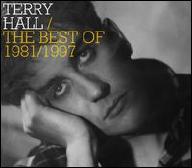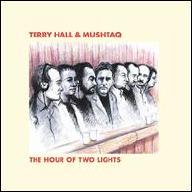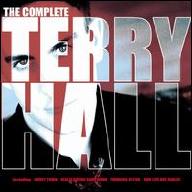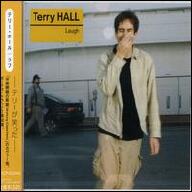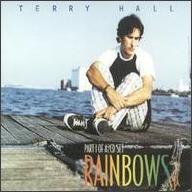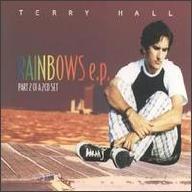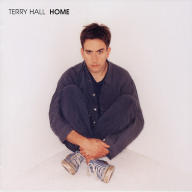Hall was singing with a new wave band called the Squad when Jerry Dammers recruited him to sing with the Specials. "Gangsters," the first single the Specials released, went into the Top Ten upon its release, establishing both the group and its independent label, 2-Tone, as a major pop force in England. For the next two years, the Specials were one of the most popular and influential bands in the U.K., scoring a streak of seven straight Top Ten singles. Their popularity culminated with the prophetic "Ghost Town," which spent three weeks at number one in the summer of 1981. The "Ghost Town" single was the last to feature Hall and the original lineup; after its release, Hall split with the group's other two vocalists, Lynval Golding and Neville Staples, to form Fun Boy Three.
Where the Specials were a ska revival band, Fun Boy Three were a new wave pop group with distinctly weird, skeletal, and experimental overtones. The band released their first single, "The Lunatics (Have Taken Over the Asylum)," shortly after they departed from the Specials. The single peaked at number 20 late in 1981. Early in 1982, the group charted again with "It Ain't What You Do (It's the Way That You Do It)," a duet with Bananarama on an old Jimmie Lunceford song. The Fun Boy Three finally released their eponymous debut in the spring of 1982. That summer, they had a hit with a cover of George Gershwin's "Summertime." The group recorded a second album with Talking Heads leader David Byrne late in 1982. The resulting album, Waiting, appeared in the spring of 1983, concurrently with the Top Ten singles "The Tunnel of Love" and "Our Lips Are Sealed," a song Hall wrote with Jane Wiedlin, who already made it into a hit the previous year with her group the Go-Go's.
By the summer of 1983, the Fun Boy Three were peaking in popularity, and Hall disbanded the group. Hooking up with ex-Swinging Cats members Toby Lyons and Karl Shale, Hall moved to Manchester and formed the Colour Field, a more lush and melodic outfit than the Fun Boy Three. In January of 1984, the band released their first single, "The Colour Field," which just missed the Top 40. It was followed later that summer with "Take," which didn't even come close to the Top 40. The Colour Field had its first hit in January of 1985, when "Thinking of You" reached number 12. It was followed by "Castles in the Air," another failed single that preceded the release of their debut album, Virgins and Philistines, by just a few weeks. Like the band's singles, Virgins and Philistines failed to gain a large audience for the Colour Field. The band released a second album, Deception, in the spring of 1987. During the sessions, Lyons left the band, leaving Hall to finish the album by himself; to complete it, Hall hired Raquel Welch's band.
After the Colour Field imploded, Hall formed a trio with an American actress called Blair Booth and a jeweler called Anouchka Groce. Terry, Blair, and Anouchka explored Hall's love for '60s pop, as well as kitschy mainstream pop, as evidenced on the trio's cover of Captain Tennille's "Love Will Keep Us Together." "Missing," the group's first single, was released in the fall of 1989 and it didn't make much of an impact, peaking at number 75 on the British charts. The trio's second single, "Ultra Modern Nursery Rhyme," didn't even chart. Terry, Blair, and Anouchka's debut album, also called Ultra Modern Nursery Rhyme, was released in February of 1990 to little attention.
Two years later, Hall returned with Vegas, a one-shot collaboration with Dave Stewart from the Eurythmics. Vegas' eponymous album was released in the fall of 1992 and yielded three minor U.K. hits: "Possessed," "She," and "Walk Into the Wind." Vegas wasn't particularly successful and the duo disbanded in early 1993. Hall released his first official solo, Home, in the spring of 1995 to mild interest. After its release, he collaborated on a new single, "Chasing a Rainbow," with Blur's Damon Albarn. The single was a minor hit and was added to a re-release of Home later in the year. Early in 1996, Hall was featured in Tricky's side project Nearly God, singing on the single "Poems."
In 2008, the Specials staged a reunion tour, featuring Hall and the rest of the classic lineup minus keyboard player Jerry Dammers. The band's initial live dates were joyously received by fans and the press, and they steadily played festivals and headlining dates for the next several years. Concerts from 2011 were recorded for a live album, released in 2012 as More ... Or Less. The Specials Live, and the core of the group -- Hall, Lynval Golding, and Horace Panter -- cut a studio album, Encore, in 2019. Another studio set, a collection of covers titled Protest Songs 1924-2012, was recorded and issued in 2021 as plans to record a roots reggae album were sidelined by the COVID-19 pandemic. Hall and his collaborators planned to return to work on the reggae album in 2022, but Hall fell ill and was diagnosed with pancreatic cancer; he spent most of the year in the hospital. Terry Hall died on December 18, 2022, at the age of 63. ~ Stephen Thomas Erlewine, Rovi


